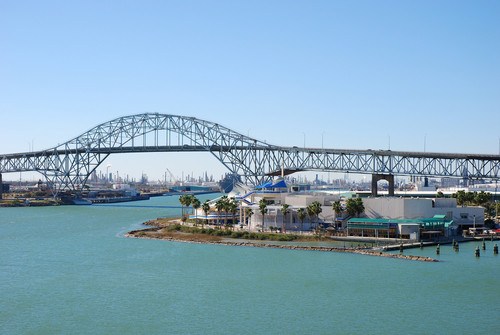The US Army Corps of Engineers (USACE) has awarded a US$139 million construction contract to Great Lakes Dredge & Dock Company, LLC. (GLDD) for the completion of the third phase of the Port of Corpus Christi Ship Channel Improvement Project (CIP).
The third phase which is projected to be completed by June of 2023, will extend the west part of the La Quinta Junction through the Chemical Turning Basin in the Port’s Inner Harbor.
“Advancing the third phase of this historic initiative in developing critical coastal navigation infrastructure reinforces our nation’s importance in serving the global energy markets, and certainly solidifies the Port of Corpus Christi’s position as the largest energy export gateway in the United States,” said Sean Strawbridge, Chief Executive Officer for the Port of Corpus Christi.
The infrastructure project which is consisted of four phases in total is planned to increase Texas port’s channel depth from 14 meters Mean Lower Low Water (MLLW) to 16.5 meters MLLW and widen it to 161.5 meters, with an additional 122 meters of barge shelves.
Earlier in March 2020, the American dredging company Great Lakes Dredge & Dock (GLDD) completed the first phase of the CIP, by deepening and widening the waterway from the Gulf of Mexico to Harbor Island.
The second construction phase which started one month later was awarded to the Texas-based Callan Marine Ltd. and is currently underway for the deepening and widening of the channel from Harbor Island to 4.3 km past the La Quinta Junction and includes Ingleside.
The US Army Corps of Engineers Commander for Galveston District, Col. Timothy Vail, noted that the completion of the channel improvement project will bring both economic and operational benefits.
The CIP is a long-anticipated collaboration between the Port of Corpus Christi, the USACE and the federal government. For more than 30 years, the Texan port has campaigned for federal funds to bring the CIP to fruition and until now, it has provided US$161.5 million for its portion of the total project cost-share, with the federal government appropriating more than US$296 million thus far in funding.







